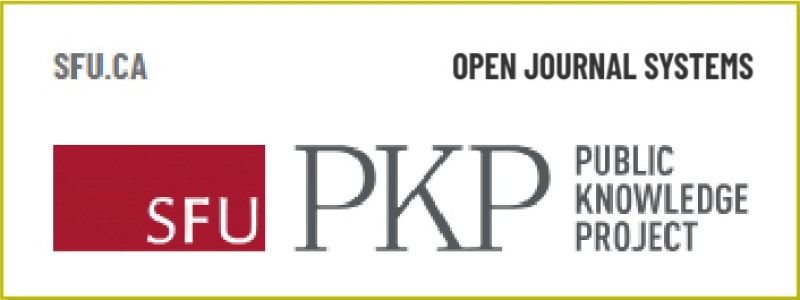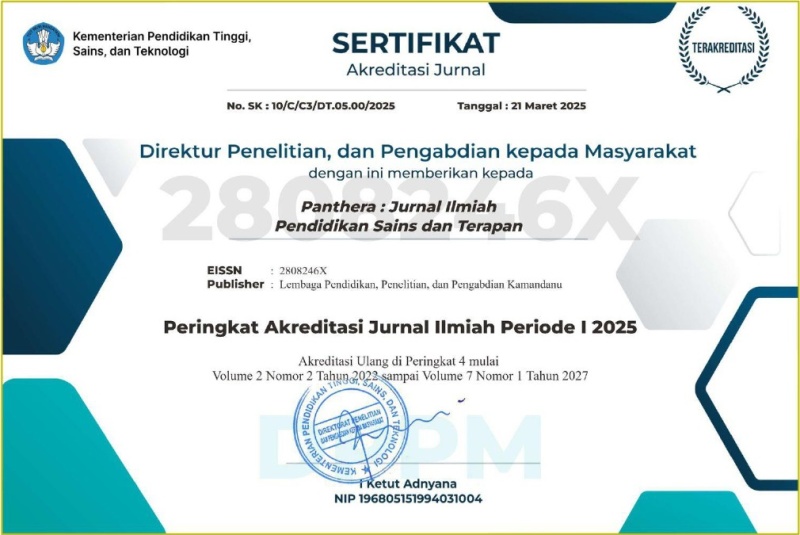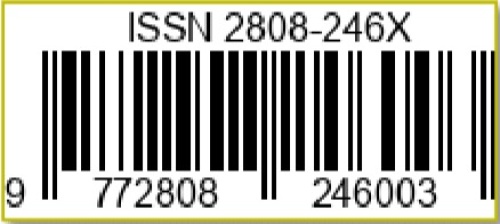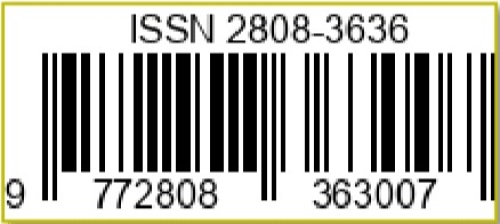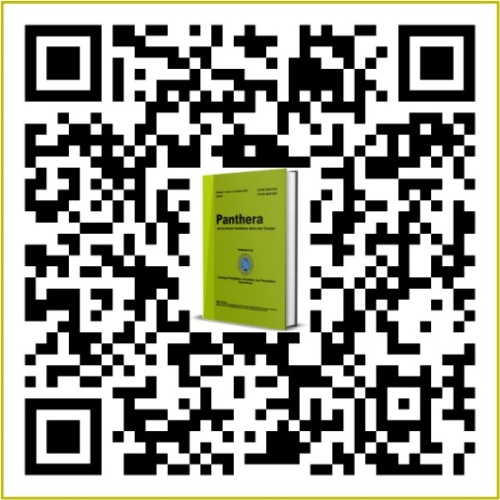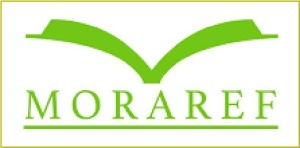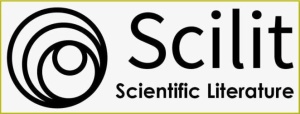Studi Karakterisasi Morfologi Asteroidea di Pesisir Pantai Gili Gede Kabupaten Lombok Barat
DOI:
https://doi.org/10.36312/pjipst.v2i1.48Keywords:
Asteroidea, Identification, Protoreaster nodosus, Linckia laevigata, Echinaster luzonicus.Abstract
Asteroidea is one of the fauna diversity in the Gili Gede area which plays an important role in maintaining the coastal ecosystem. This study aims to provide information on the morphological characterization of Asteroidea on the coast of Gili Gede which is packaged in the form of a practical assistance book for Invertebrate Systematics. The subject of this research is Asteroidea from Phylum Echinoderms. The object of this research is limited to studies on morphological characterization studies of Asteroidea. This is a descriptive exploratory research and used the cruise method by exploring the coastal area of Gili Gede at a predetermined point based on habitat. Data collection techniques are observation and documentation. The measured microclimate parameters (salinity, temperature and humidity). Sampling was carried out in Gili Gede and morphological identification at the Biology Laboratory, Faculty of Applied Science and Engineering, Mandalika University of Education. Based on the identification results, the identified asteroids were Protoreaster nodosus (6 individuals), Linckia laevigata (19 individuals) and Echinaster luzonicus (3 individuals). Protoreaster nodosus and Echinaster luzonicus were found in seagrass habitats while Linckia lavigata were found in sandy substrate habitats and coral reefs. Based on the morphological identification observed (color, body circumference, arm length, madreporite, central canal circumference and spicules). It was found that Protoreaster nodosus had white and black color on the spicules and the ends of the arms, massive body circumference; Linckia laevigata is blue in color and non-massive in circumference; Echinaster luzonicus is black on the dorsal and orange on the ventral side with a non-massive body circumference; There is one madreporite in each specimen. Based on the results of the validation of the assistance book, it shows that it is very valid (obtaining a score of 85) and is suitable for use by students as a source (reference), especially the types of Protoreaster nodosus, Linckia laevigata, Echinaster luzonicus.
Downloads
References
Afifah, H. N. (2018). Identifikasi Tumbuhan Paku di Kawasan Hutan Gunung Butak sebagai Sumber Belajar Biologi. Skripsi. Universitas Muhammadiyah Malang.
Ariyanto, T. P. (2016). Keanekaragaman dan Kelimpahan Echinodermata di Pulau Barrang Lompo Kecamatan Ujung Tanah Kota Makassar. Skripsi. Universitas Islam Negeri Alauddin Makassar.
Bessisura, S. F. (2018). Keanekaragaman Jenis Asteroidea pada Daerah Intertidal Pantai Abat, Desa Jenilu, Kecamatan Kakuluk Mesak, Kabupaten Belu. Diploma Thesis. Unika Widya Mandira.
Eman, A. I., Kaligis, E. Y., Sinjal, C. A. L., & Wagey, B. T. (2021). Keanekaragaman dan Kepadatan Echinodermata dan Asteroidea di Rataan Terumbu Karang Perairan Tongkaina dan Bahowo Kota Manado. Jurnal Pesisir dan Laut Tropis, 9(1), 11-21. https://doi.org/10.35800/jplt.9.1.2021.33075
Jalaluddin., & Ardeslan. (2017). Identifikasi dan Klasifikasi Phylum Echinodermata di Perairan Laut Desa Sembilan Kecamatan Simeulue Barat Kabupaten Simeulue. Jurnal Biology Education, 6(2), 81-97. https://doi.org/10.32672/jbe.v6i2.435
Mappetahang, K. K., Annawaty., & Supono. (2018). Jenis-jenis Bintang Laut (Echinodermata : Asteroidea) di Perairan Pulau Busak Kabupaten Buol Sulawesi Tengah. In Prosiding Semnas Biodiversity Conservation (pp. 40-45). Sulawesi Utara, Indonesia: Universitas Tadulako.
Mbana, Y. R., Daud, Y., & Bullu, N. I. (2020). Keanekaragaman Bintang Laut (Asteroidea) di Pantai Lamalaka Kecamatan Ile Boleng Kabupaten Flores Timur. Indigenous Biologi : Jurnal Pendidikan & Sains Biologi, 3(2), 57-67. https://doi.org/10.33323/indigenous.v3i2.78
Ningsih, R. Z., Taib, E. N., & Agustina, E. (2018). Karakteristik Filum Echinodermata di Pulau Dua Kabupaten Aceh Selatan. In Prosiding Seminar Nasional Biotik (pp. 129-137). Banda Aceh, Indonesia: Universitas Islam Negeri Ar- Raniry.
Patty, S. I., & Akbar, N. (2018). Kondisi Suhu, Salinitas, pH dan Oksigen Terlarut di Perairan Terumbu Karang Ternate, Tidore, dan Sekitarnya. Jurnal Ilmu Kelautan Kepulauan, 1(2), 1-10. https://doi.org/10.33387/jikk.v1i2.891
Rahmadina. (2019). Biologi Taksonomi Invertebrata. Medan: Fakultas Sains dan Teknologi UINSU Medan.
Romimohtarto, K., & Thayib, S. S. (1982). Kondisi Lingkungan dan Laut di Indonesia. Jakarta: LON-LIPI.
Rumasoreng, S. (2020). Kepadatan dan Keragaman Bintang Laut (Asteroidea) di Perairan Desa Waai Kabupaten Maluku Tengah. Skripsi. Institut Agama Islam Negeri Ambon.
Setyowati, D. A., Supriharyono., & Taufani, W. T. (2017). Bioekologi Bintang Laut (Asteroidea) di Perairan Pulau Menjangan Kecil, Kepulauan Karimunjawa. Management of Aquatic Resources Journal (MAQUARES), 6(4), 393-400. https://doi.org/10.14710/marj.v6i4.21328
Wahida, N. (2020). Pemberdayaan Masyarakat dalam Pengembangan Desa Wisata di Desa Gili Gede Indah Kecamatan Sekotong Kabupaten Lombok Barat. Skripsi. Universitas Muhammadiyah Mataram.
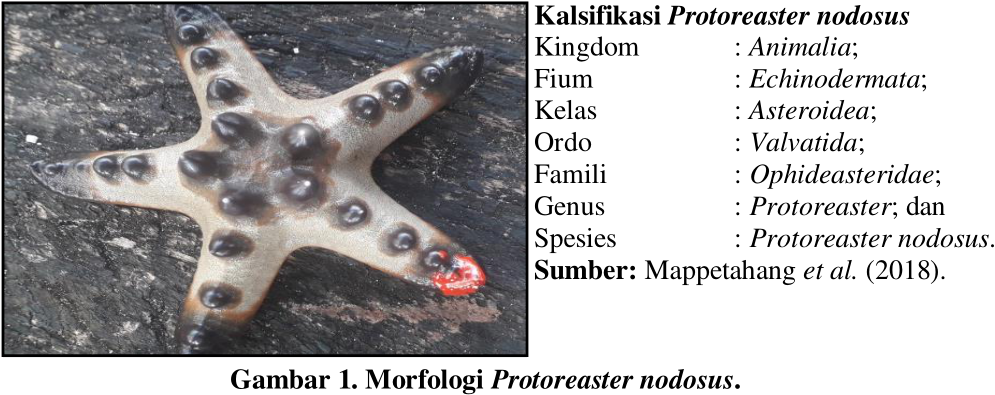
Downloads
Published
How to Cite
Issue
Section
License
Copyright (c) 2022 Ahmad Maulidin Khalid, Sri Nopita Primawati, & Nofisulastri

This work is licensed under a Creative Commons Attribution-ShareAlike 4.0 International License.
-
Attribution — You must give appropriate credit, provide a link to the license, and indicate if changes were made. You may do so in any reasonable manner, but not in any way that suggests the licensor endorses you or your use.
-
ShareAlike — If you remix, transform, or build upon the material, you must distribute your contributions under the same license as the original.

